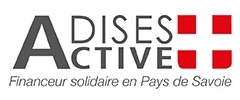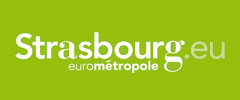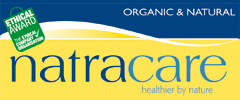EWA Kyrgyzstan: leadership trainings and the access to drinking water
A story of WECF’s partner CAAW
24.09.2014 |

Rural women in the Naiman village in Kyrgyzstan were actively engaged in changing the Community Drinking Water Users Union (CDWUU) and are active within the management structures including the CDWUU General Assembly.
One of the reasons of this is that women groups could implement the knowledge they gained from the gender leadership training. There they had learned about self-confidence building for example.
The CAAW team, together with women groups, discussed and analysed the results of the work that was implemented during village meetings.
Here is the story of Kalys Kurbanalieva, who was as a community leader involved in the empowerment of women for leadership positions and was also involved in bringing changes to the rural community life in her village Naiman of the Nookat rayon.
Kurbanalieva is a community leader of the Naiman village and has worked with the community for several years. As a leader she contributed to the social-economic development of the village. But it was for the first time during the village meetings with CAAW that she heard that the access to the drinking water supply is provided by CDWUU. She also learned that the structure of CDWUU is a public one and does not belong to the state, so that every member of CDWUU and the community has an opportunity to improve the system of the drinking water supply.
During the reporting period of the project Kurbanalieva actively participated in the training of gender leadership and water management. In this training she gained knowledge about the concept of gender, the human right to access to water and community water management. She also learned how to mobilize other rural active women for her group and how to cooperate with them. In April 2013, she used the knowledge she gained in the training to gather a group of active women who would work together to contribute to the development of the village. At the moment, Kurbanalieva and her women group conduct meetings to advocate the importance of gender equality within the work of CDWUU.
The reason why the story of Kurbanalieva was chosen is because she benefitted from the trainings on gender leadership and because we can also see a real change in her life. One of her successes, as a result of the gender trainings organized by CAAW, is the tangible change that occurred in the ‘Naiman Suu’ of CDWUU. The previous male director was not enthusiastic about community work and could not effectively function as a leader within the CDWUU structure. Only men took part in the formal meetings of CDWUU and the majority of the subjects that were discussed involved technical issues. Rural women were not involved in the meetings. At that time only ten percent of the population paid the tariffs for drinking water.
Soon after her trainings Kurbanalieva gained a lot of support from the villagers who stated that ‘she had become a good female role-model for the other women in the village’. Together with other rural women she went many times to the Local Authority to initiate the CDWUU and made steps to improve the condition of the drinking water in the village. Village elders initiated a general assembly meeting and elected Kurbanalieva as the new director for ‘Naiman Suu’ of CDWUU. In June there was a general meeting, where the women raised the issue of drinking water and the importance of changing CDWUU.
Before the program intervention the population had only access to drinking water for two hours a day. It was difficult for women and girls to bring water home and they did not had time to cover long distances to collect water from another source. Before the women group came into existence they did not know they could solve and influence this water issue through CDWUU. During field visits it became clear that a lot of women were not satisfied with the work of CDWUU. After the leadership trainings and the formation of the women group, three women entered the Board and one woman became the Executive Director of CDWUU.
Kurbanalieva and her women group organized several meetings with the population and addressed the head of the village in order to change CDWUU and to establish a general assembly for CDWUU. Kurbanalieva has now created a good platform for the implementation of her own election campaign, where she hopes to increase the interests of rural women for the access to drinking water and gender issues in the local community.
Related News
Teach a woman how to harvest, and her family and community will benefit for a lifetime
WECF's EWA programme “Empower Women, Benefit for All” in rural Kyrgyzstan leads to women empowerment, income generation for women and improved living standards
07.08.2015 | Carmen Chan
Meet Kalys: the woman who helped providing water access for her village
WECF's EWA programme “Empower Women, Benefit for All” in rural Kyrgyzstan leads to women empowerment, income generation for women and improved living standards
07.08.2015 | Carmen Chan
Female deputies of Kyrgyz National Parliament commit to women empowerment and improved access to water and sanitation
A high-level stakeholder meeting took place on 28 May 2015, at the National Parliament (Jogorku Kenesh) of Kyrgyzstan in the framework of the Forum of Women of the Jogorku Kenesh
27.07.2015
Kyrgyz deputies are concerned about water, sanitation and hygiene conditions in villages
Deputies of Kyrgyz Supreme Council visit villages to assess WASH issues in schools and kindergartens
22.06.2015
Example of Water Solidarity between France and Kyrgyzstan
Safe Drinking Water for An-Oston Village driven by a local women´s initiative
21.05.2015






































